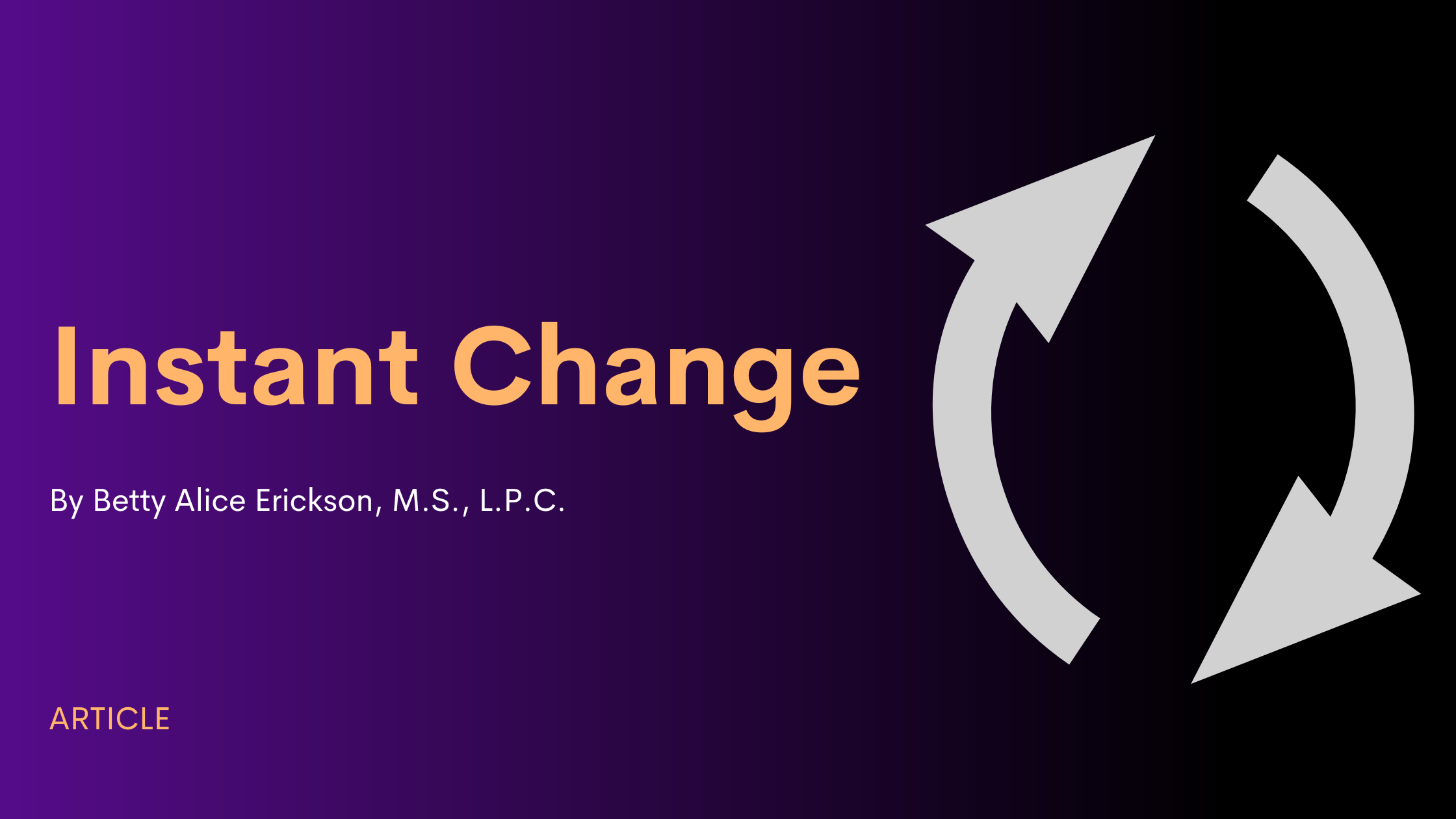Instant Change
By Betty Alice Erickson, M.S., L.P.C.
Estimated Reading Time: 3 minutes, 33 seconds
To be in Milton Erickson’s presence was to invite him to teach. And teach he did! Almost everyone who spent time with him can remember precisely the words he said that changed life forevermore. Even people who read his words often comment that “his voice goes with them.”
I am fortunate that when I think of my father, I vividly remember many times when just a few words changed me instantly. In this case, Dad and a family friend, Margaret Mead, worked in tandem. Although the event and words are crystal clear, I don’t remember who said what-they complimented each other beautifully.
In the mid-1970s, my family and I had just returned from a four-year stay in Addis Ababa, Ethiopia. I had taught at a private high school there; our student body was a mixture of races and cultures. One third were military or State Department dependents, a third Ethiopian nationals, and the remainder were children of the international community, including a small number of Americans whose parents were employed by the United Nations.
On my first visit home after our return to the States, I was telling Dad and Margaret Mead about something that had truly troubled me. My last year there, one of my 16-year-old American students, Tom, had great difficulties and I didn’t know how to help him. I had watched him change over the school year, I said, turning from an unhappy youngster who merely had difficulties making friends to a depressed and bitter boy who withdrew from all social contact. In one long discussion with me, Tom had confided he was being severely emotionally abused and mistreated by another teacher.
The teacher had befriended Tom who did not want to give up his only friend. It’s important to know that there was no television, no radio, no movies, shopping malls, or other standard entertainment in Addis. Social interactions and school sports were virtually the only entertainment.
My father and Dr. Mead both listened carefully as I talked about my dismay over the boy’s pain. They responded as a team. “Why didn’t you report the teacher’s behavior to the boy’s parents?” “I did. The parents didn’t care,” I answered. They thought the friendship was good for their lonely son-and Tom vehemently defended the comradeship he felt.
“What did the principal of the school say?” “He didn’t care either,” I replied. His orientation was to smooth things over. Tom was now involved, had a social life, and did not appear to be troubled. I argued that the relationship was inappropriate and harmful to Tom. The principal insisted that Tom’s relationship with the teacher was not a problem and that Tom and the family were happy with the situation.
Dad and Dr. Mead began to understand my difficulties but pushed further. “Were there no authorities you could go to with your concerns?”-No. The Ethiopians were in the midst of political turmoil through out their country and didn’t care about possible problems in the foreign community. Tom was not a military dependent so that avenue was also closed.
They asked me if the boy realized he was being mistreated. “Vaguely, but he didn’t care,” I said. I continued that he was so desperate for acceptance, for a friend, any friend, for anybody to pay attention to him that there was no room for any other thought in his mind. My children were too young to fill that gap. The times I had invited him to dinner was not enough, and I could scarcely go out and talk the other teenagers into being his friend. I had also talked to other teachers about my concerns but without success.
Finally, they asked, “Did you go to the teacher himself and say, ‘Stop! I know what you’re doing. Stop!”‘
I hadn’t. “But he wouldn’t have stopped,” I said.
There was a long pause while they both looked at me. “Well, we’ll never know, will we!” Our conversation was over.
At that moment, I made a vow. I would never ever be in a position again where I did not explore every option. I never wanted to hear myself–or anyone, ever again, say, “Well, we’ll never know, will we.”
This excerpt has been extracted from Volume 24, Issue No. 3 of The Milton H. Erickson Foundation Newsletter.
You may like…






